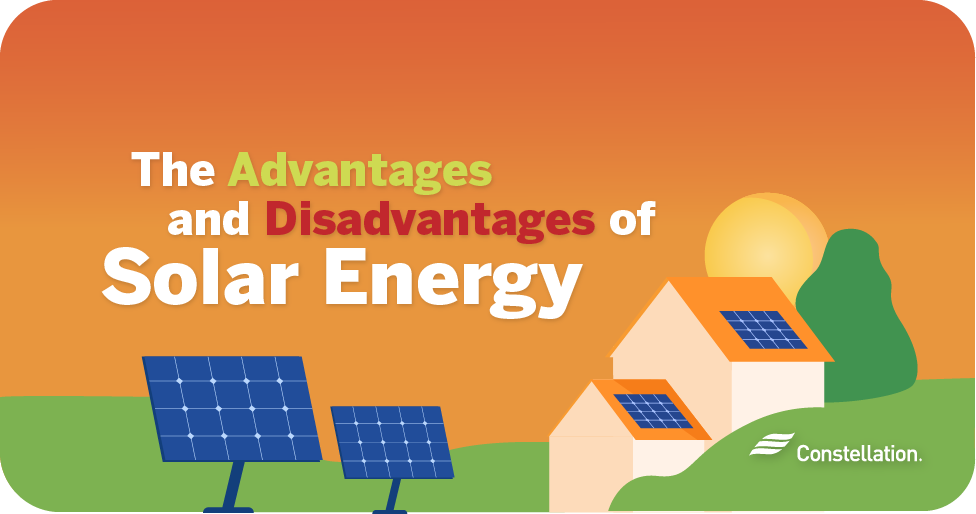How Solar Power Can Help You Save Money and Lower Your Carbon Impact
The combination of solar energy right into your power profile provides a compelling chance for both financial savings and environmental stewardship. By utilizing the sun's energy, property owners can substantially lower their regular monthly utility costs while also safeguarding against the unpredictability of future power prices. Additionally, the shift to solar contributes to a marked decline in carbon exhausts, lining up individual finance with wider ecological objectives. As various federal government rewards become readily available, the concern develops: how can one effectively browse the preliminary investments and recurring benefits of solar modern technology to optimize both financial and environmental gains?
Recognizing Solar Energy Cost Savings
While the shift to solar power commonly entails a first financial investment, understanding solar power cost savings is vital for homeowners and services alike. Solar energy systems can substantially minimize power costs by using the sunlight's power, equating right into significant long-lasting economic advantages.
Additionally, solar power systems may certify for various monetary rewards, consisting of tax credit histories and refunds, even more enhancing their cost-effectiveness. The schedule of web metering permits customers to offer excess energy back to the grid, developing an extra income stream. These variables add to the general cost savings connected with solar power.

In enhancement to route financial financial savings, solar power provides the included benefit of boosting residential or commercial property value. Homes geared up with solar panels are usually extra eye-catching to customers, as they assure reduced power prices - Simply Solar Illinois. Understanding these components is crucial for anyone taking into consideration solar power, as it highlights not just the potential economic gains, yet additionally the wider environmental and economic advantages of adopting renewable resource options
Preliminary Costs vs. Long-Term Perks
When reviewing solar energy, it is very important to weigh the initial prices against the long-term advantages. The in advance investment for photovoltaic panels, installment, and associated devices can be considerable, commonly ranging from $15,000 to $30,000, depending on the system dimension and home energy demands. This first expense may deter some home owners; nevertheless, it is essential to think about the potential financial savings in time.
Once mounted, solar power systems can significantly minimize and even get rid of regular monthly electrical power costs, causing considerable long-term economic benefits. Research studies show that house owners can conserve anywhere from $10,000 to $30,000 over the life-span of their planetary system, commonly 25 years. In addition, many states offer motivations, tax credit reports, and rebates that can balance out first costs, making solar extra easily accessible.

Reducing Your Carbon Impact
Decreasing your carbon footprint is a crucial factor to consider in today's environmentally aware society, and embracing solar energy is one of one of the most effective methods to achieve this goal. Solar power is a tidy, sustainable source that considerably lessens reliance on nonrenewable fuel sources, which are significant contributors to greenhouse gas exhausts.

Additionally, the prevalent fostering of solar modern technology motivates the growth of green tasks and sustains innovations in power storage and performance. The more people and organizations purchase solar power, the greater the collective decrease in carbon emissions, cultivating a cleaner atmosphere for future generations.
Federal Government Motivations and Refunds
Taking on solar power not just profits the environment yet can likewise lead to considerable economic savings, particularly with the schedule of government motivations and rebates. Different government, state, and local programs are created to urge property owners and services to buy solar power systems, making the shift extra budget friendly.
One of the most famous incentives is the Federal Financial Investment Tax Obligation Credit Score (ITC), which allows solar system proprietors to subtract a significant percentage of the installation expenses from their federal tax obligations. This reward has actually been crucial in decreasing the in advance costs connected with solar energy systems. In addition, several states supply their very own tax obligation debts, gives, and discounts that can additionally boost financial savings.
In addition, some neighborhood federal governments give real estate tax exceptions for solar installments, making certain that homeowners do not face raised property taxes as an outcome of their renewable resource investments. Energy business might also supply motivations, consisting of net metering and feed-in tariffs, which permit solar power individuals to market excess power back to the grid.
Selecting the Right Solar System
Selecting the suitable solar system is critical for making best use of power efficiency and economic benefits. The decision rests on numerous elements, including energy demands, budget plan, and available area. Homeowners must begin by examining their electrical power intake see this here to identify the system size needed for ideal efficiency.
Next, take into consideration the various types of solar modern technologies offered. Simply Solar Illinois. Photovoltaic Or Pv (PV) panels are the most usual, transforming sunlight straight right into electrical energy, while solar thermal systems focus on home heating water. Each kind has unique advantages relying on individual demands
Budget factors to consider are additionally critical. Initial setup prices can vary dramatically, so it is essential to contrast quotes from multiple service providers and explore financing alternatives. Government rewards and discounts can further minimize the financial problem, making planetary systems more look what i found obtainable.
Conclusion
In summary, solar power offers a practical option for attaining significant cost savings while concurrently minimizing carbon discharges. The initial investment, though significant, returns considerable lasting financial benefits, with prospective cost savings varying from $10,000 to $30,000 over 25 years. The ecological advantages of solar energy contribute to sustainable practices essential for combating climate modification. Federal government motivations boost the usefulness of solar modern technology adoption, encouraging a transition towards a cleaner, a lot more financially reliable power resource.
Comments on “Find Budget-Friendly Solar Solutions with Simply Solar Illinois for Residential Needs”